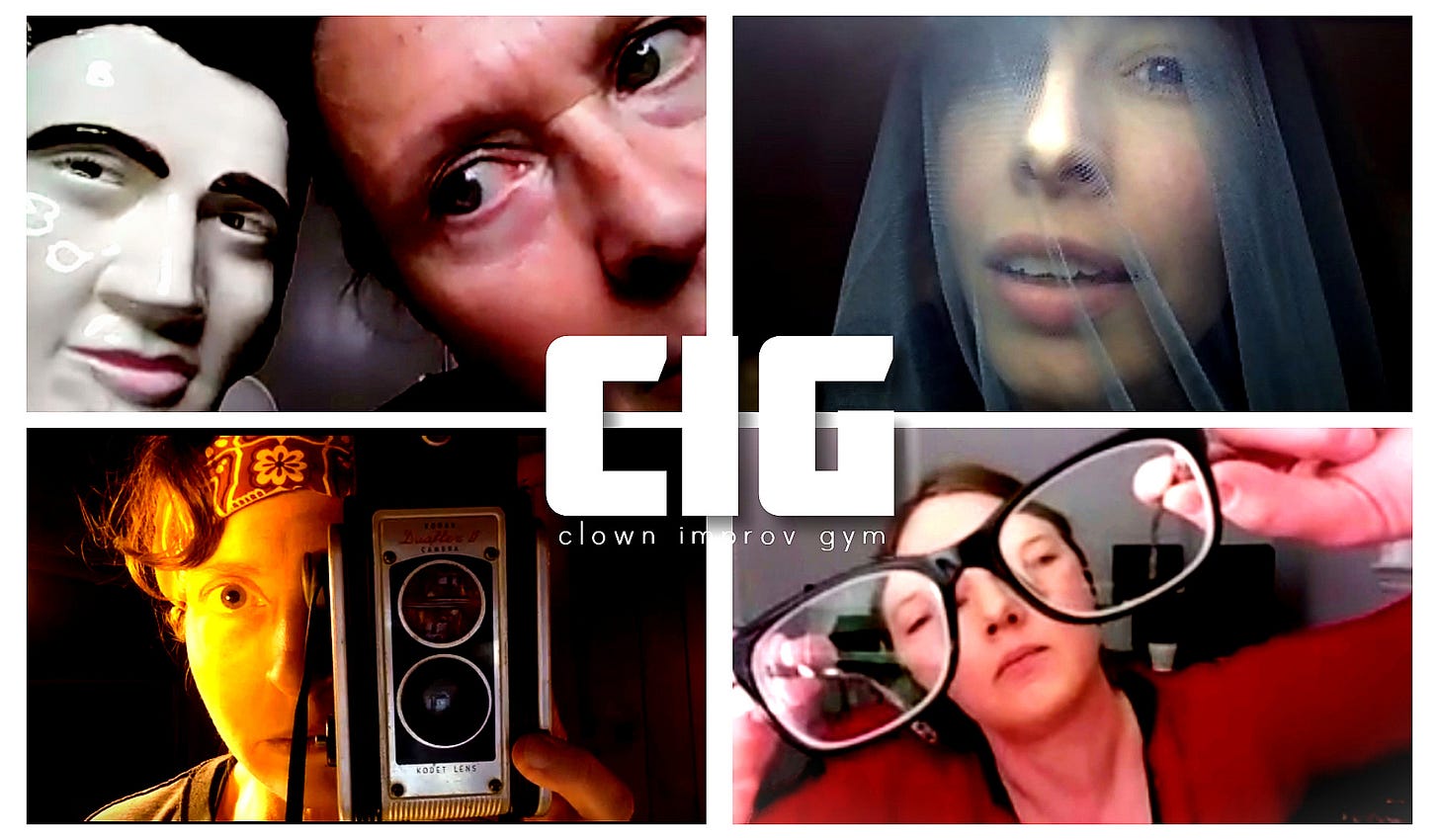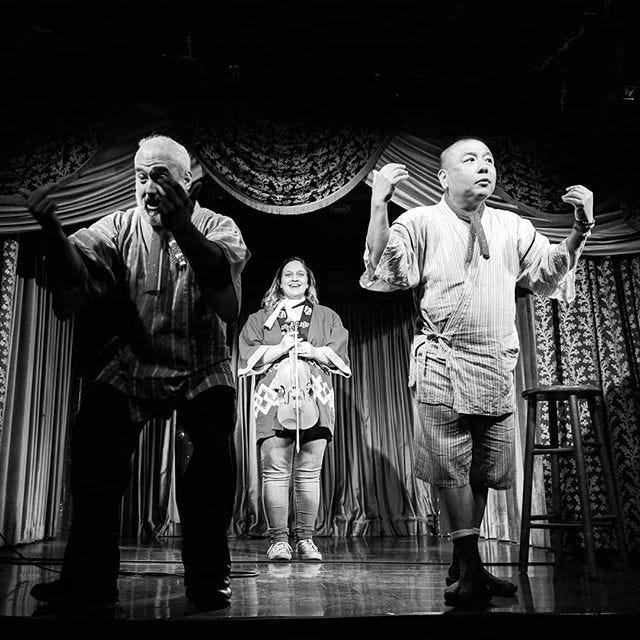A Clown Talks About the Past
How can clowns learn from history while staying firmly in the present?
Hey, clowns!
I’ve been dragging a bit since returning from a clown trip to Toronto.
This was my last teaching trip of the year and — as much as I love visiting new clown communities — I’m not the traveler I was in my 20s. Back when I was in pro wrestling, we’d be on the road 200 days a year. I loved all of it: the airports, rental cars, wandering through the concrete catacombs of stadiums and arenas. Most mornings, I’d wake up and have to look at the hotel phone to remind myself what city I’d fallen asleep in the night before.
That was over 25 years ago. I can remember lots of outrageous stories, but it’s harder to recall more personal details. How did I see the world? Was I happy or sad most of the time? What did I value most in the people who surrounded me?
How are we supposed to remember who we were when we can’t be sure of who we are now?
One of the highlights of reading my old teaching notes has been reviewing what I wrote down during the pandemic. I’d completely forgotten that I detailed every single drill I was creating for online classes. I spent about six weeks offering free sessions to rebuild my curriculum. I’d only ever taught in person and had never taken any kind of physical theater class online.
(These pictures were weekly “winners” from my Zoom classes, which I called CIG)
I can see myself coming to the realization that translating in-person exercises was a mistake. At one point, I wrote this line to myself — almost as an afterthought — after a rough night.
Worry less about what you are trying to say
Focus on how and why
I’m not sure if this was the moment where I shifted gears, but this became my priority. I was so determined to create a curriculum that I wasn’t taking in the fact that students were letting me into their homes. Places where they ate and slept. Online classes weren’t new, but teaching something as vulnerable as clown work, during a global pandemic… It required an acknowledgment from me of that trust.
Zoom was the how in this equation. It wasn’t just a virtual space replacing a physical one. Every feature created opportunities for play. Screen grabs. Music. Breakout rooms. Private chats. It also gave students an opportunity to be seen in a different way. You could get uncomfortably close to the camera and let people soak in every pore. Or you could disappear in an instant by disabling video or stepping out of frame.
In retrospect, we were creating work that reflected a shared collective experience. The isolation. The restriction. The desire for connection. We were proof that humans always find a way to be joyful — regardless of the obstacles.
That was as true for the teacher as it was for the students.
That’s my biggest issue with a lot of old writing. They not only reflect a different time period, but a different me. One I can’t always remember.
I started writing ten years ago. I was launching my clown duo Jetzo then, and scrambling to book ten shows a month. These were all at traditional improv spaces. We were experiencing interest, but also had the benefit of being unique. That allowed us to try different tactics. The show was changing drastically from week-to-week.
I was also going through personal changes. My partner passed away a couple years earlier. My screenwriting career was at its peak, but no longer creatively fulfilling. I was moonlighting as a clown. It was an act of rebellion. An attempt to kill the emptiness and resurrect the artist.
How much of that desperate energy carried my work back then? If I played the exact same way today, would it feel fresh — or outdated and misplaced?
This is an especially important question for clowns. We are supposed to be anarchists and disruptors, but many of us choose to romanticize the past. If we want to hold a mirror to society — live and play in the present moment —can we also be so respectful of old traditions?
I think the answer, like most things in clown work, lies in the contradictions.
A clown has no past or future. They live in the now.
But our present selves are the sum value of our lives. You don’t just magically become an open and kind person. We pursue connection because we have experienced its benefits. We are brave because we’ve been hurt, but still dare to take risks. We choose to play — despite society working tirelessly to assimilate us, so those in power can benefit from our obedience and labor.
I am definitely a better clown today than I was ten years ago. But there are skills I’ve allowed to soften in pursuit of new ones. I’m older and more cautious about my body. I talk more and dance less. I have more solutions, so I ask less questions.
Maybe I won’t be publishing exercises I did six years ago. But this book was never supposed to be a prescriptive guide to doing clown work. The goal is to connect with artists and relate to them as they embark on their own personal journey. To remember all my own little victories and reconnect with the versions of myself that allowed me to be right here.
Worry less about what you are trying to say. Focus on how and why
OTHER CLOWN BUSINESS!
LISTEN TO STAND UP AND CLOWN (THE PODCAST) is where Chad interviews artists who either identify as clowns or use elements of clown in their work. There’s a really great interview up right now with Toronto’s GORDON NEILL. I’ll also be dropping another solo pod soon! I’m continuing to explore the intersection of clown and improv by looking at how clowns utilize rules.
APPLE PODCASTS: shorturl.at/DFKR5
SPOTIFY: shorturl.at/HPQ18
STAND UP AND CLOWN (THE SHOW) takes place last Mondays (unless there’s a holiday) at 930pm at The Elysian Theater. The next show is our big Halloween special on 10/30! As of publication, Cameron Esposito will be running the clown gauntlet under my ruthless direction.
10/30: https://tinyurl.com/ydppu6td
ALSO CHECK OUT MY LINKTREE: https://linktr.ee/chad.damiani
AND FOLLOW ME @THECHADDAMIANI ON IG!






